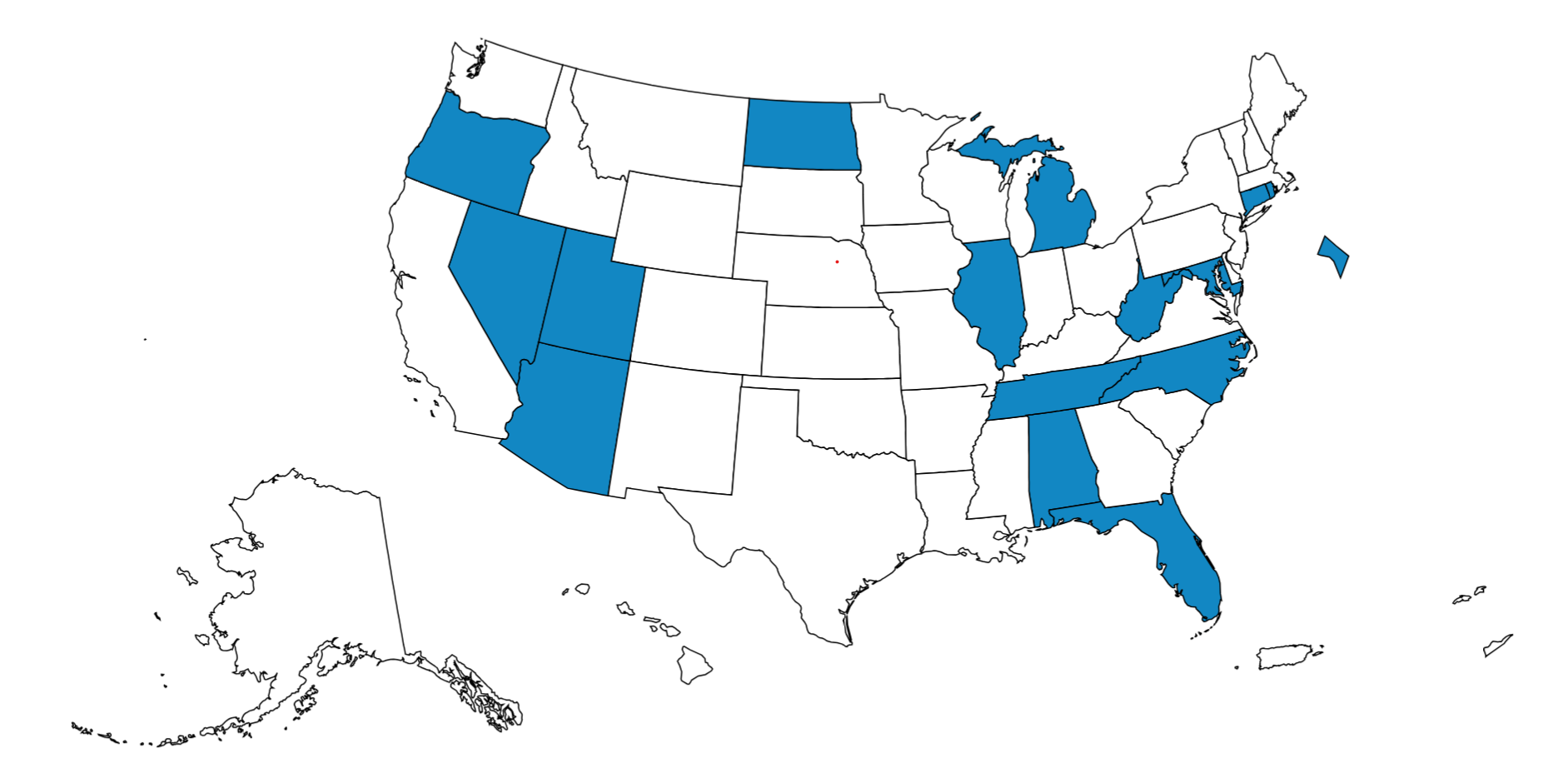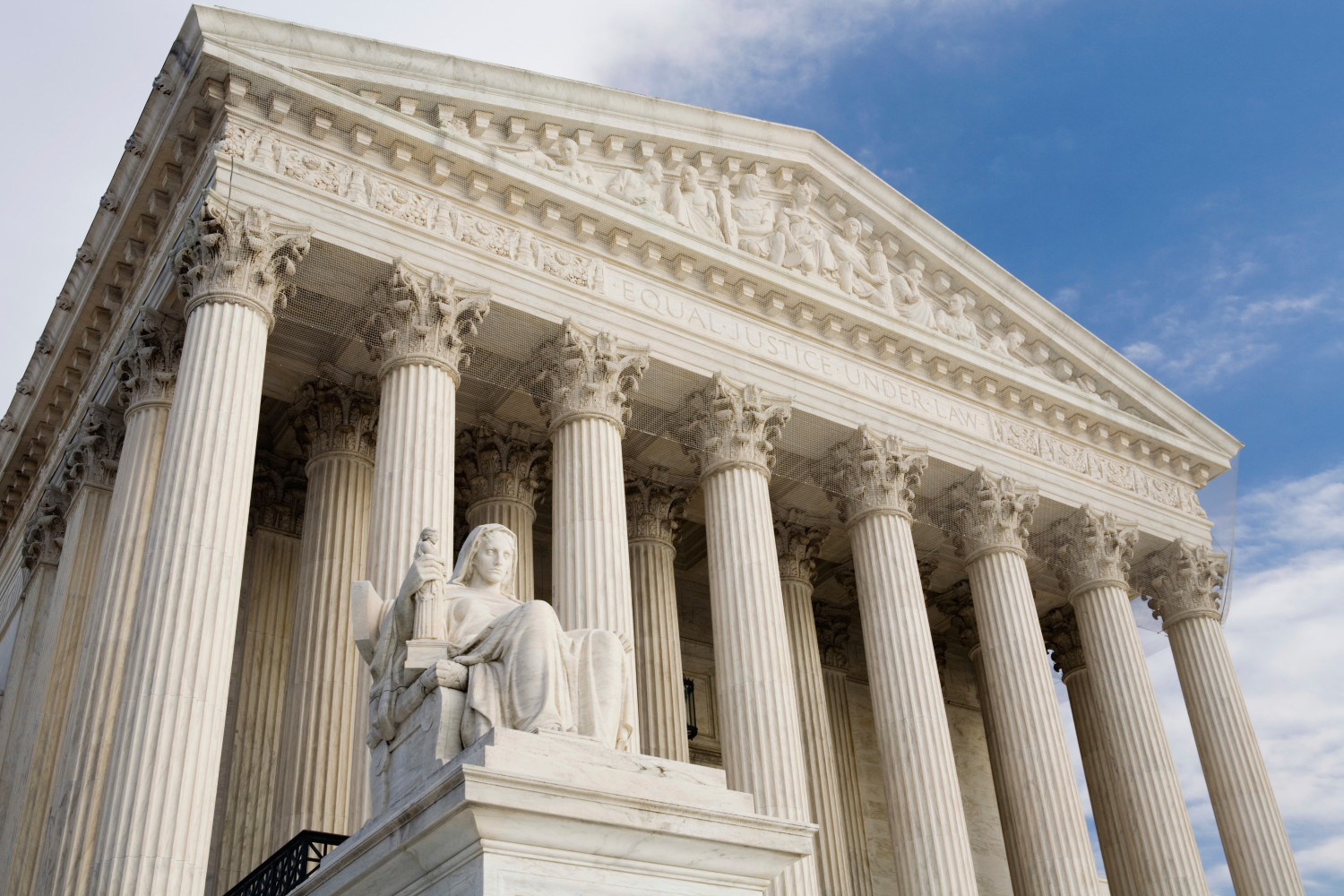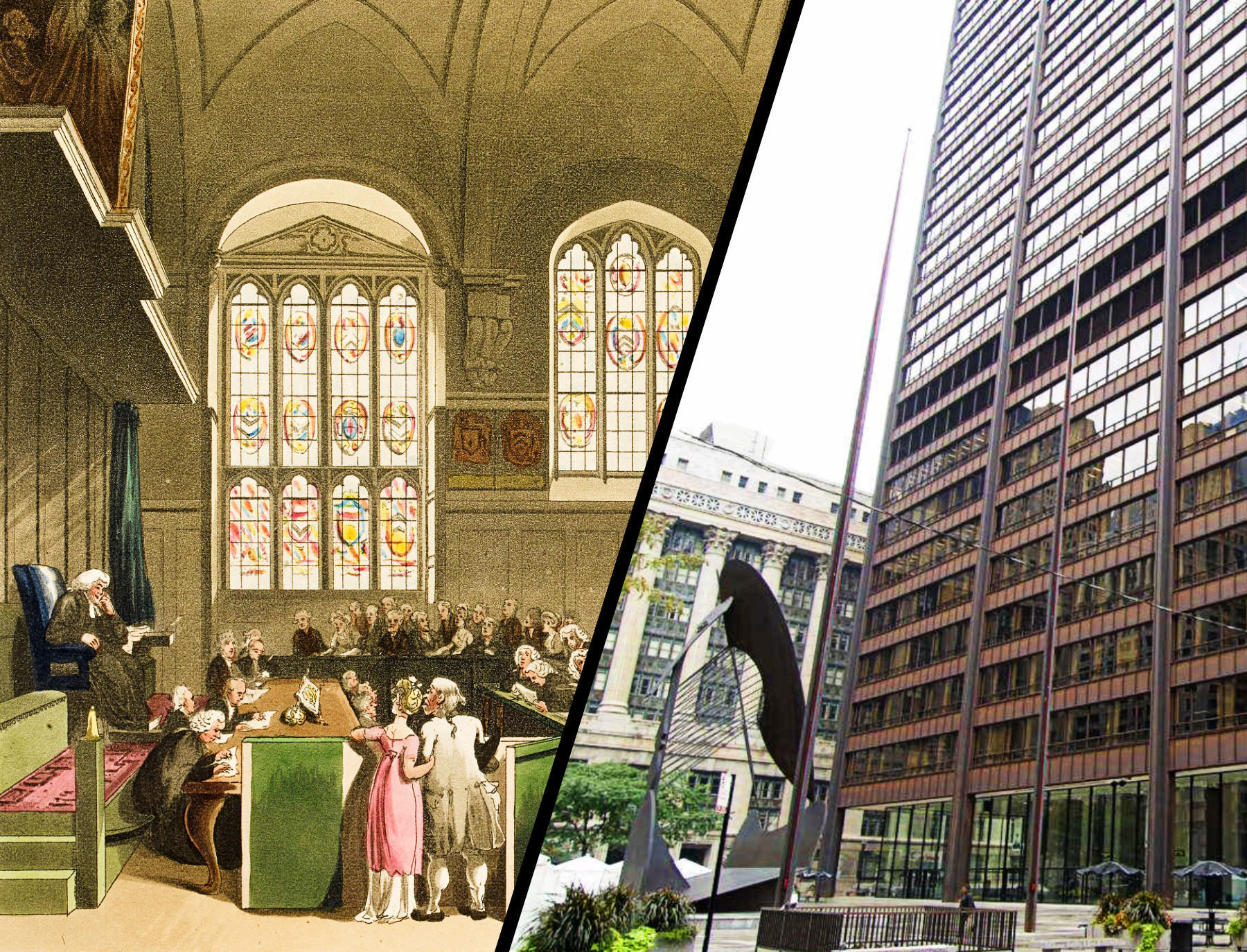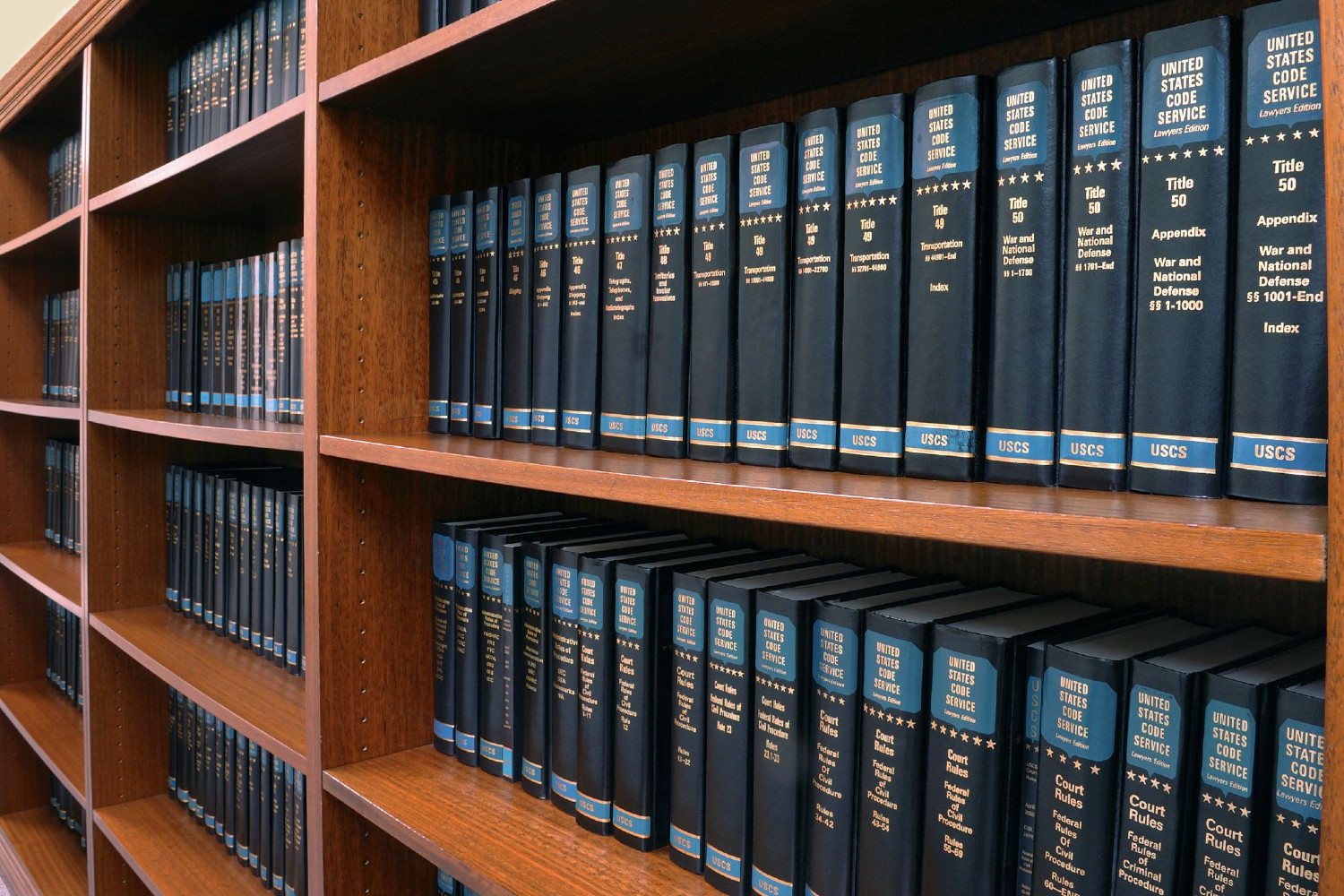In this article, I want to explore use of a receiver by municipalities. Under the forthcoming Illinois Receivership Act (HB0028)—which on May 22, 2025 has passed both houses of the 104th General Assembly a receiver can be appointed to take custody, control, and/or manage various types of property, assets, businesses, and legal rights under court supervision. Municipalities can move to appointment a receiver for: unsafe, vacant, or code-violating buildings, public nuisance properties, neglected historically relevant landmark properties, and buildings endangering public health and safety.
1. Overview of the Illinois Receivership Act (HB 0028)
As of May 22, 2025, HB 0028 was enrolled by the 104th Illinois General Assembly, authorizing courts to appoint receivers to assume possession, control, and management of a broad range of real and related personal property—including businesses, corporations, trusts, fixtures, and land—under judicial supervision.
The Act applies to most properties, with notable exemptions for:
- Owner-occupied residential properties (see exceptions),
- Receivers appointed under governmental units acting in an official capacity (unless opted in),
- Receiverships under Illinois Mortgage Foreclosure Law.
Jurisdiction rests exclusively with the appointing court, empowering it to direct the receiver’s powers over possession, improvement, disposition of property, and resolution of disputes. Prior to appointment, the court must ensure appropriate notice and hearing opportunities—safeguarding due‐process.
Key receiver powers include:
- Taking possession and control;
- Managing and preserving property;
- Incurring secured or unsecured debt for maintenance and repair;
- Issuing “receiver’s certificates” (a form of prioritized lien);
- Asserting or defending legal claims;
- Receiving approvals, permits, and contracting in the property’s name.
Together, statutes and traditional principles of equity supplement the Act, empowering courts with wide latitude to craft remedies.
2. Pre‑Existing Municipal Receivership Authority under Illinois Law
Illinois municipalities already had a statutory receivership mechanism under 65 ILCS 5/11‑31‑2 (Municipal Code), which authorizes them to petition for judicial receivership when buildings fail to meet health and safety standards under local ordinance. This existing law allows:
- Courts to appoint a receiver to bring properties into compliance;
- Receivers to use rents/issues for repairs;
- Municipal issuance of receiver’s notes/certificates, creating first-priority liens (except for taxes);
- Foreclosure and enforcement protocols (including redemption periods)
A municipality also may recover costs of feasibility studies when it’s not financially viable to renovate a property—and the receiver may be reimbursed via lien foreclosure.
HB 0028 expands on this baseline, offering a more modern and consistent framework, potentially streamlining enforcement for municipalities.
3. Appointment of a Receiver at the Municipality’s Request
3.1. Triggering Conditions
Under HB 0028, municipalities may petition for a receiver appointment when properties present an imminent threat to public health, safety, or welfare. Relevant categories include:
- Unsafe, vacant, or code‑violating buildings: those structurally unsound, vandalized, or decaying to the point of posing physical risks.
- Public nuisance properties: generating health hazards, facilitating illegal activities, or producing impairments (e.g., hoarding, rodent infestations).
- Buildings endangering public health and safety: leaking utilities, mold infestation, fire hazards, or unsecured structures.
- Neglected Historically Relevant Landmark Properties: receivership under HB 0028 also provides a valuable mechanism for preserving and restoring historically significant or landmark properties that have fallen into disrepair. Many such structures—once vital to the cultural and architectural fabric of a community—face demolition due to neglect, vacancy, or code violations. A court-appointed receiver can stabilize these properties, secure necessary permits, and coordinate with preservation commissions or local heritage groups to carry out sensitive rehabilitations. By leveraging prioritized receiver’s certificates and court oversight, municipalities gain a tool to save irreplaceable historical assets while ensuring public safety and compliance with modern standards. This not only protects community identity but also encourages heritage tourism and economic revitalization.
The municipality must demonstrate due investigation, notice to the owner, and failure by the owner to act—paralleling both HB 0028’s hearing requirement and the Municipal Code.
3.2. Judicial Process & Notice
HB 0028 requires that before receivership, affected parties receive:
- Formal notice,
- Opportunity for hearing,
- Disclosure of the nature of code/public health violations.
HB 0028 also allows appointment of a receiver an emergency bases without a notice. Similarly, 65 ILCS 5/11‑31‐2 mandates expedited hearings and precedence in court calendars, ensuring swift resolution befitting public safety concerns.
4. Powers of a Receiver Acting in the Municipality’s Interest
Once appointed, the receiver may:
- Take possession and control of the property,
- Secure and repair code violations (structural, electrical, plumbing, unsafe materials),
- Contract for professional services (engineers, contractors, attorneys, inspections),
- Obtain permits, approvals, or variances in lieu of neglectful owners,
- Collect income (e.g., rents or security deposits),
- Issue receiver’s certificates creating leans on the subject property,
- Foreclose liens to recover costs,
- Sell or lease the property—subject to court approval—to resolve hazards or recuperate value.
Distinct from the Municipal Code, HB 0028 extends these powers beyond rental housing, permitting receivership over broader asset types (e.g. businesses, trusts).
5. Addressing Unsafe, Vacant, or Code‑Violating Buildings
Cities and towns routinely encounter abandoned or blighted properties that defy owner action. Under the new state law, receivership provides tools to:
- Hold owners accountable for neglect;
- Appoint a receiver to secure, maintain, and rehabilitate;
- Use lien-backed funding to finance repairs;
- Foreclose strategically to transfer ownership or generate redevelopment interest.
This mechanism combats urban decay, deters squatting or vandalism, restores historically significant landmark properties, and creates structured incentives for rehabilitation.
6. Tackling Public Nuisance Properties
Public nuisance properties—garbage-strewn lots, hoarding homes, or sites of illegal activity—often pose less obvious structural threats but severely impact neighborhoods. Receivership can:
- Enable municipal intervention without assuming full title,
- Secure and abate nuisances via clean-ups, remediation, and ordinance enforcement,
- Issue prioritized certificates to ensure cost recovery,
- Prevent rehabbing delays by enforcing standards before sale or lease.
HB 0028’s notice and lien protections reduce financial risk to municipalities and encourage neighborhood stabilization by removing open-ended uncertainty.
7. Combatting Buildings Endangering Public Health and Safety
Properties with mold, lead paint, fire hazards, or collapsed utilities demand rapid remedies. HB 0028:
- Permits preemptive liens and foreclosure,
- Avoids owner delay through receivership,
- Protects neighboring residents and public welfare,
- Offers courts authority to force remediations via receivership.
By combining enforcement with prioritized financing, municipalities can correct health hazards before they escalate into epidemics or safety calamities.
8. Managing Costs & Financial Recovery
A major feature of HB 0028 is its reaffirmation of receiver’s certificates, a financial instrument allowing:
- Immediate funding of necessary repairs via loans or municipal advances,
- Automatic lien —making repayment almost certain if the underlying property maintains positive equity,
- Disposition of certificates as investments or civic tools.
This financial architecture removes capital barriers for municipalities, enabling faster interventions without budget drains.
9. Interplay with Existing Laws
9.1. Municipal Code (65 ILCS 5/11‑31‑2)
HB 0028 complements—not replaces—the Municipal Code. Cities may continue to invoke injunctive relief and receivership under Chapter 65, particularly for housing issues. However, HB 0028 extends options to commercial and mixed-use properties, as well as other legal entities.
9.2. Mortgage Foreclosure & Tax Sales
Although foreclosures continue under existing mortgage and tax-sale laws, HB 0028 empowers municipalities to intervene earlier, reducing dependency on lengthy foreclosure processes and allowing faster reclamation of public safety risks.
10. Strategic Use by Municipalities
Situations ripe for receivership include:
- Vacant commercial properties declared unsafe and causing urban risk,
- Hoarded homes with public health hazards,
- Fire-damaged buildings vulnerable to collapse or misuse,
- Abandoned sites notorious for crime or pollution.
- Landmark Properties that have been neglected and may face demolition.
Steps to action:
- Document violations and financial analyses;
- Issue official notices to property owners under municipal code;
- Initiate receivership petition, citing HB 0028;
- Coordination with courts for hearings and appoint receiver;
- Fund certification issuance to support remediation work;
- Engage a receiver in rapid stabilization and long-term redevelopment;
- Follow through: certificates redeemed or liens foreclosed and property transferred/sold.
11. Benefits & Limitations
Benefits
- Court-authorized intervention with clear financial backing,
- Streamlined timeline, with expedited hearings,
- Broad scope: covers buildings, businesses, assets, and trusts,
- Equitable cost recovery via lien-priority mechanisms,
- Protects neighborhoods from long-term decay and dangerous conditions.
Limitations
- Process complexity—municipalities require legal expertise,
- Side-effects of foreclosure: ownership displacement,
- Significant court oversight: must establish receivership grounds persuasively,
- Challenges in valuation: certificates only recover if property equity exists,
- Owner contests, especially regarding property rights or economic feasibility.
12. Comparative Outlook & Interstate Context
Several states (e.g., Michigan, Massachusetts) offer “nuisance receivership” models that, like Illinois’s update, empower courts to remedy derelict properties through financiers or government-appointed agents. HB 0028 aligns Illinois with this emerging trend, emphasizing financing via lien structures and inclusive property coverage.
13. Looking Forward: Implementation & Considerations
To ensure the law’s effectiveness, Illinois municipalities should:
- Adopt or update local ordinances complementing HB 0028,
- Train code enforcement & legal staff on receivership law and petitions,
- Budget for feasibility studies, even if charges are lien-recoverable,
- Outline criteria and thresholds for receivership invocation,
- Engage community stakeholders to temper public concern and avoid abrupt displacements.
Success stories from early adopters can help craft best practices, frameworks, and protocols for broader application.
14. Conclusion
The Illinois Receivership Act (HB 0028) marks a pivotal reform, granting municipalities a potent tool to address unsafe, vacant, and nuisance properties that threaten public health and safety. By integrating a robust receivership framework—rooted in court authority, lien-based financing, and expansive coverage—the law empowers local governments to accelerate remediation, recover costs, and encourage neighborhood revitalization. While careful implementation will be necessary to balance owner rights, community cohesion, and strategic financing, HB 0028 promises to energize municipal capacity to act decisively against blight and hazards—supporting healthier, safer, and more vibrant Illinois communities.
15. About the Author
Arthur R. van der Vant is a court-appointed Illinois Receiver with extensive experience in managing and rehabilitating distressed properties, businesses, and complex assets under judicial supervision. With a background in real estate, finance, construction, title insurance, property management, and fiduciary administration, Mr. van der Vant has served in many receivership cases throughout the state, working closely with municipalities, courts, and stakeholders to stabilize and reposition properties that threaten public health and safety. His work emphasizes legal compliance, financial accountability, and community-focused resolution strategies.
Contact
Arthur R. van der Vant Illinois Receiver 312-607-4646 vandervant@IllinoisReceiver.com IllinoisReceiver.com













